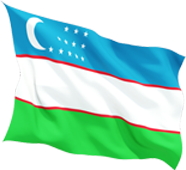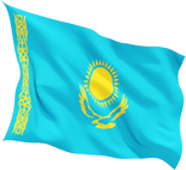In November of this year, Uzbekistan’s chairmanship in the Turkic States Organization (OTS) concluded. It was marked by significant achievements that played a substantial role in strengthening the country’s international political and economic positions. Throughout its chairmanship, Uzbekistan actively promoted initiatives aimed at enhancing Turkic cooperation, developing trade and economic ties, and expanding mutually beneficial relations with member countries of the organization.
Uzbekistan on the path of strengthening Turkic unity
In 2019, after obtaining full membership status in the OTS, Uzbekistan became an active participant in regional and international forums, exerting significant influence on decision-making and shaping the organization’s common political agenda. The activation of Tashkent within the organization was a manifestation of the country’s fundamental transformation in its foreign policy activities. This is openness, initiative, proactiveness, economic pragmatism, and, most importantly, a focus on multilateralism and readiness to take responsibility for ensuring regional security and addressing global issues.
This approach is justified through the diversification of foreign economic ties, which helps maintain stability and economic resilience in the country. Since becoming a full participant in the OTS, Uzbekistan has put forward more than 50 important initiatives aimed at deepening cooperation in various fields, more than half of which have been fully implemented. These include the “Pilgrimage Tourism” program, the Youth Entrepreneur Forum, the Information Technology platform, the Transport Connectivity program, the coordination group for combating the “Covid-19” pandemic, and others. Undoubtedly, their implementation contributes to strengthening economic cooperation, developing infrastructure, and technological progress among the member countries of the OTS.
An important turning point in the transformation process of the organization was the Samarkand Meeting of the OTS, which took place in 2022. This was the first summit of the heads of state of the organization’s member countries after the renaming of the Turkic Council to the OTS. Experts note that this historical event symbolizes the onset of a new era of cooperation and integration among Turkic states. This is largely facilitated by Uzbekistan’s well-thought-out foreign policy strategy, with a special focus on developing cooperation with Turkic countries.
A significant outcome of the Samarkand Summit was the adoption of the “OTS Strategy for 2022-2026,” which became the first roadmap for implementing the concept of development for Turkic countries, known as the “Vision of the Turkic World 2040.”
It is deeply symbolic that President Shavkat Mirziyoyev emphasized during the forum that “there is no doubt that together we are entering a completely new stage of development under the slogan ‘New Era of Turkic Civilization: Towards Common Progress and Prosperity’.”
It was under this slogan that Tashkent assumed the chairmanship of the OTS in November 2022. This opened up a wide range of opportunities for our country to increase its influence in the region and strengthen diplomatic ties with other states and international organizations.
At the same time, Uzbekistan made a significant contribution to the development of the overall Turkic cooperation platform and the enhancement of the collective potential of the OTS. This is primarily explained by the unique role our country plays in the Turkic world.
Indeed, Uzbekistan possesses not only a rich cultural heritage and a strategic geopolitical position but also significant economic potential, which was utilized during its chairmanship to contribute to the development of the region, expand trade and economic ties, and increase export markets.
To achieve these goals, the leadership of Uzbekistan developed a specific action plan, which prioritized areas such as the development of trade and economic ties and transportation and logistics potential within the OTS, tourism, IT. Attention was also focused on strengthening cultural and humanitarian cooperation, promoting public diplomacy, supporting youth, and improving the institutional foundations of the OTS.
In pursuit of these objectives, over 100 events were organized during Uzbekistan’s chairmanship, and several new platforms for practical cooperation were established. Structures such as the Organization of Professional Unions of Turkic States, the Academy of Space Research, the Geographical Council, the Institute for Drought Prevention, and the Union of Notaries began their operations.
Close partnerships were formed with a number of authoritative global and regional organizations, including the United Nations and its specialized institutions, the Organization of Islamic Cooperation, the Conference on Interaction and Confidence Building Measures in Asia, and the Economic Cooperation Organization.
During its chairmanship, Uzbekistan sought diverse and flexible forms of cooperation based on openness, inclusivity, and involving various regions and civilizations.
The implementation of Uzbekistan’s chairmanship concept has contributed to creating a favorable environment for mutually beneficial cooperation among the participating countries, strengthening trust and mutual assistance, which was evident during the earthquakes that struck Turkiye in February of this year.
Uzbekistan, along with other Turkic countries, actively participated in the relief efforts to mitigate the consequences of the disaster. Search and rescue teams, seismologists, and medical personnel were dispatched. Approximately 160 tons of humanitarian aid were delivered, a field hospital was set up, and collection points for humanitarian assistance were established in major cities of the country.
In a gesture of deep respect for the memory of all those who tragically lost their lives, our country’s leader proposed declaring February 6 as the Day of Remembrance and Solidarity in the OTS countries.
Uzbekistan-OTS: successful economic and cultural projects and cooperation strategies
Particularly noteworthy are the economic achievements of our country during its chairmanship in the OTS. Despite the global economic crisis, Uzbekistan managed to ensure sustainable growth in trade, economic, and investment cooperation within the Organization during this period, laying the foundation for further development of these partnership spheres.
For instance, the established Investment Fund and Development Bank will contribute to attracting and managing investments in various sectors of the economies of OTS member states. These institutions serve to strengthen economic integration and promote industrial cooperation, trade and economic relations between states, as well as contribute to improving the quality of life and well-being of the region’s population.
Speaking of trade, during the first half of 2023, Uzbekistan’s trade volume with Turkic countries increased by 3.5% compared to the same period last year, reaching over 5 billion dollars. As of August 1st this year, our country had 3284 joint ventures and foreign enterprises operating with capital from OTS member states. In comparison with the corresponding date in 2022, their number increased by 305 units, indicating a growth of over 10%. There is also an increase in investment volumes from Turkic states, which reached 1,557 billion dollars for the period of January-June this year, marking a 16% increase compared to the same period last year.
One of the important directions of the concept of Uzbekistan’s chairmanship was also the work to create conditions for the development of transport infrastructure of the OTS countries, diversification of global supply chains and transport corridors, the formation of a unified transit network in the space of the Turkic states.
In light of this, Tashkent’s policy aimed at promoting the implementation of various prospective projects. Among them, the “Middle Corridor” stands out, which experts believe has significant transport and logistics potential. The volume of cargo transportation along this route increased approximately threefold (1.5 million tons) in 2022 compared to 2021.
By developing the “Middle Corridor” and diversifying access to Asian and European markets through the promotion of the construction of the “China-Kyrgyzstan-Uzbekistan” railway and the “Trans-Afghan Corridor,” Turkic countries will enhance the attractiveness of the OTS space as a trans-regional transit bridge not only for the member states but also for non-regional players. In line with this, the proposal of the President of Uzbekistan to establish a Council of Railway Authorities of the Organization, with its headquarters located in our country, serves the same purpose.
Tashkent recognizes that integrating the region into international value chains and developing economic ties with various partners require a broader approach that goes beyond just Turkic states. Our country strives to establish open and adaptive international partnerships that can contribute to the economic development and security of Central Asia as a whole.
In determining the prospects for together progress, it is also important to rely on the spiritual and moral values, rich history, and culture of our peoples, their centuries-old friendship, traditions of good neighborliness, and mutual understanding.
In this context, Uzbekistan pays great attention to the development of cultural and humanitarian issues, including cooperation in the fields of science, technology, education, healthcare, youth policy, religion, sports, and tourism. Joint festivals, concerts, cultural days, and exchanges of creative groups have been organized. These include conferences on the contributions of the Jadid movement to the development of Turkistan, meetings of the Union of Turkic Universities, the Congress of Medicine of the Turkic World, meetings of religious leaders, and the OTS Media Forum.
In order to preserve, study, and transmit the invaluable heritage of the ancient Turkic civilization to future generations, the year 2023 has been declared the “Year of the Development of Turkic Civilization.”
Chairmanship in the OTS – Strengthening the Political and Economic Role of Uzbekistan
In general, Uzbekistan’s chairmanship in the Organization of Turkic States has provided the country with an opportunity to strengthen its global political and economic positions. It has enhanced the image of the state as an active participant and full-fledged member of the OTS, an initiator of integration processes within the organization. It has also provided impetus for the comprehensive development and strengthening of the organization’s position on the international stage.
Uzbekistan’s commitment to strengthening its international standing in the context of chairing the OTS is a vivid example of strategic thinking and global influence of official Tashkent. This opens up new horizons for growth and progress for its people and the region as a whole.
According to experts’ assessments, during his chairmanship in the organization, Uzbekistan contributed to the formation of the identity of the Turkic peoples, primarily on a cultural and economic basis, and stimulated countries to maintain and strengthen the concept of solidarity and fraternal ties.
A significant achievement in this direction was the establishment of the international award of the Turkic Council, named after Alisher Navoi, – Uzbek poet and thinker who inspired and united people in different Turkic countries through his works, calling for harmony and cooperation.
In turn, awarding the leader of the state at the OTS summit in Astana with the “Highest Order of the Turkic World” is an eloquent confirmation of the importance and relevance of the initiatives put forward and implemented by our country, as well as the personal role of the President of Uzbekistan in strengthening the unity of the Turkic world.
In general, Uzbekistan will continue to make political and diplomatic efforts to promote common interests and values of Turkic countries in the international arena, to promote the disclosure of the political, economic, cultural and humanitarian potential of the OTS countries.
The active participation of our country in the work of the Organization is also important in the context of further strengthening friendly ties based on centuries-old historical ties throughout Central Asia. This will serve as an additional impetus for the functioning of regional cooperation mechanisms in Central Asia, which is a priority in the foreign policy of Uzbekistan.
Alisher Kadirov,
Head of the Department
of the Institute of Strategic and Regional Studies
of the Republic of Uzbekistan.












